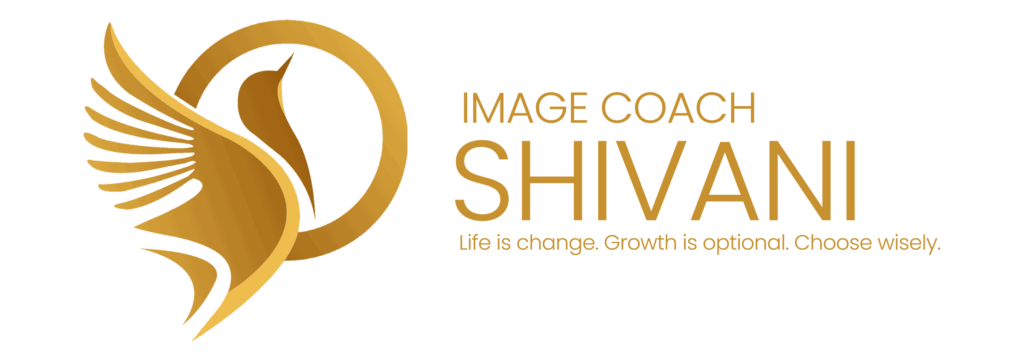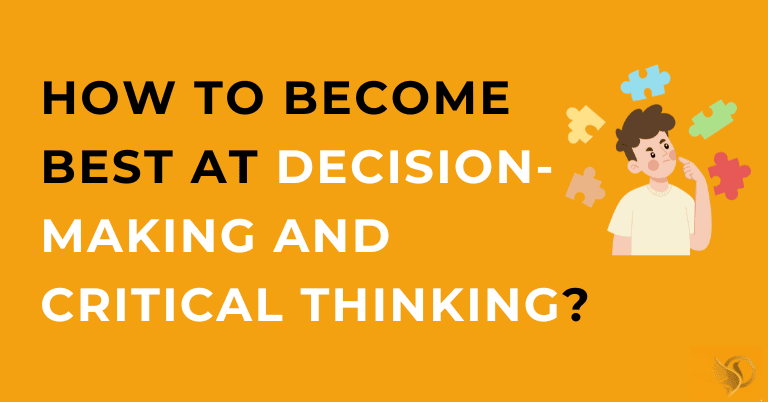Critical thinking is a basic cognitive process that helps people solve complicated problems and make informed decisions by allowing them to objectively analyze, evaluate, and interpret information. It entails using logic and reasoning, challenging presumptions, identifying biases, and considering various viewpoints. It calls for self-corrective, self-directed, self-monitored, and self-disciplined thought processes. In a world of information and differing viewpoints, critical thinking is crucial. It clarifies things and keeps us from being tricked or duped.
What is the importance of Critical Thinking Skills?
Making personal decisions, pursuing professional goals, and educating oneself require critical thinking skills. It enables students to understand and interact with difficult subjects in classroom settings while differentiating between sound and false arguments. Critical thinking at work enables people to assess issues, develop original solutions, and reach well-informed conclusions. Making wise decisions and avoiding cognitive biases aids people in navigating an increasingly complex world in their daily lives. It serves as our main defense against false or “spun” information.
Advantages Of Critical Thinking Skills
The advantages of critical thinking are numerous.
Enhanced Decision-Making
Critical thinking fosters autonomous thought and the ability to trust our instincts. It empowers people to make defensible decisions grounded in objective analysis and evidence. Making better decisions is facilitated by encouraging the evaluation of all pertinent factors and possible outcomes.
Effective Problem-Solving
Critical thinking makes recognizing the underlying problems easier, developing novel solutions, and assessing their feasibility. It encourages people to approach issues from multiple viewpoints, increasing the possibility that they will find workable solutions.
Diminution of Cognitive Biases
Self-reflection is supported by critical thinking. It supports people in identifying and combating cognitive biases that obstruct sound judgment. By being aware of and challenging their presumptions and beliefs, people can more effectively combat confirmation bias, groupthink, and the availability heuristic, which determines the probability of an event based on memories of past occurrences. It demands a dedication to overcoming the inclination to view things from a limited, self-serving viewpoint.
Improved Capabilities in Communication
Critical thinking skills help people communicate more effectively by empowering them to express and support their opinions with reasoned arguments and supporting data. It promotes empathy, active listening, and the capacity to assess and reply to opposing viewpoints, all contributing to more fruitful and insightful conversations.
How can critical thinking be developed?
Be observant and questioning.
Encourage a curious attitude and a desire to learn about and comprehend the world. Engage in conversation with people from different political parties, cultures, or religions. Make thoughtful inquiries, look for fresh viewpoints, and participate in active learning. Learn from those with opposing opinions.
Gain analytical abilities.
This can be achieved by developing your ability to spot patterns, deconstruct complicated issues into smaller, more manageable pieces, and establish cause-and-effect connections. Recall that not all viewpoints are equal and that some are blatantly incorrect.
Assess data
Acquire the ability to assess the validity and dependability of information sources. Recognize bias, evaluate the available data, and distinguish between opinion and fact. Steer clear of “swallowing information whole” and the notion that “If it’s on the internet, it must be true.”
Engage in reflective practice
Think reflectively by analyzing your ideas, presumptions, and beliefs. Think about other people’s perspectives and be willing to adjust your own based on new information.
Accept intellectual modesty
Recognize the possibility of error and act with humility. Since learning is a lifelong process, be willing to acknowledge your errors and knowledge gaps. Adopt a growth mindset that emphasizes ongoing education and development.
Grow in your sense of identity
A sense of belonging is ranked third in Maslow’s hierarchy of needs. Connection is one facet of belonging. This is a need shared by all people. When we fail to exercise critical thinking, we risk adopting our group’s views without first considering whether they are consistent with our values.
Sync up your beliefs and values
Instead of defining yourself by a specific viewpoint, consider whether a different viewpoint is consistent with your values. When our identity is based on our reference group’s political, religious, or other views, we search for evidence to support our positions. We deprive ourselves of the ability to think critically when we do this.
How to evaluate Critical Thinking?
Your ability to think critically will be demonstrated in several ways:
Evidence-Based Decisions
Trust the facts, not your feelings or prejudices. The five A’s are as follows: ask, access, appraise, apply, and audit. These are five discrete steps. Before making decisions, gather pertinent data, assess the evidence impartially, and consider various viewpoints. Then, as you gain new knowledge, reassess them.
Solving Problems
Solve problems methodically by defining the problem, compiling pertinent information, generating ideas for potential solutions, and assessing viability. Collaboratively solve problems to gain insights from different viewpoints. Be open-minded when examining different ways of thinking. Acknowledge presumptions, ramifications, and real-world effects; make necessary adjustments.
Communication becomes Effective
Communicate with others clearly and effectively to solve complex problems. Use your critical thinking abilities to listen intently, express yourself clearly, and have courteous, productive conversations. Rather than using personal attacks, refute ideas with reasoned arguments and supporting data. Respecting those who hold dissenting opinions does not imply that you share those viewpoints. Analyze, formulate, and convey inquiries with precision and clarity.
Ongoing Education
Use critical thinking to advance your career and personal growth. Seek opportunities to learn more, participate in thought-provoking conversations, and proactively question your presumptions and beliefs.
How to make decisions wisely?
Any decision-making process begins with these easy steps: Determine the issue.
Let’s take the scenario where you need to select between two apartments. One is more distant from work but less expensive. The other is far more costly but is also closer and nicer.
Which one would you pick? You likely have some idea, depending on your values. Based on your feelings and instincts, this first reaction is quite reasonable, but you should also consider your options logically.
Weighing your options in comparison
Let’s start by contrasting them. This can be done in a few different ways. For instance, you could list every consideration, including amenities, price, and location, and then decide which is most important. In light of that, which choice
Establishing a point system
You could design a point system. Using the same list, create a scorecard for every choice.
In this case, the first apartment would receive a high location score (let’s say a 10) but a low affordable rent score. The other apartment would receive roughly the opposite score in the same categories.
Continue down the list until you have assigned a score to each item, trying to be as impartial as possible. Next, tally up the results to determine if there is a winner.
Finding advantages and disadvantages
Or, you could use a list of advantages and disadvantages to assess each option separately. Though it may seem obvious, writing these things down is helpful.
It’s acceptable to be subjective this time—some considerations can and should be given greater weight than others. Being sincere about the significance of these items to you is important because that’s what matters most.
Additional mental tricks
It’s common to feel overwhelmed or even stuck at this point. With so much to consider, how can you be sure you’re choosing wisely? A few additional methods can stimulate your brain and deceive it into thinking differently. The next time you need a mental reset, give these a try.
The two-minute distraction
Take up a two-minute, moderately challenging task to divert your attention. Whatever works for you may be solving math problems or playing mobile games.
Using a third-person perspective
Putting yourself in someone else’s shoes and helping them can sometimes be beneficial. Research indicates that we can think more clearly when we are in the third person, which is why giving advice is easier than receiving it.
Essential Critical Thinking Capabilities
Critical thinkers have a few essential traits that enable them to challenge the information they consume and their ideas. Build your critical thinking abilities by concentrating on the following areas:
Curiosity
It’s critical to have the willingness and capacity to investigate novel concepts and alternate strategies. Can you formulate potential outcomes, consider “what if” scenarios, and validate your hypotheses? If not, you could miss the best solution for your circumstances because you’ll have a tendency to rule out ideas and options too quickly.
Logical Thinking
Developing logical thinking and reasoning skills is necessary to generate believable possibilities or results.
Self-Recognition
Our ideals and beliefs softly influence a lot of the choices we make in life. These influences are known as cognitive biases, and because they are frequently subconscious, it can be challenging to recognize them in oneself.
Applying Critical Thinking
A strong cognitive tool that helps people deal with the complexity of the modern world is critical thinking. Through the development of logical reasoning, analytical skills, and an open mindset, critical thinking improves decision-making, problem-solving, and communication abilities. It helps people overcome cognitive biases, assess information well, and make wise decisions. Individuals gain from developing and using critical thinking abilities, and society as a whole becomes more thoughtful and reasonable. Adopting a critical thinking mindset is crucial for promoting advancement, stimulating intellectual development, and meeting 21st-century challenges.
Do you want to train yourself? Join the personal image management course by Image Coach Shivani who can help you become a better version of yourself and easily develop your decision-making and critical thinking skills.


